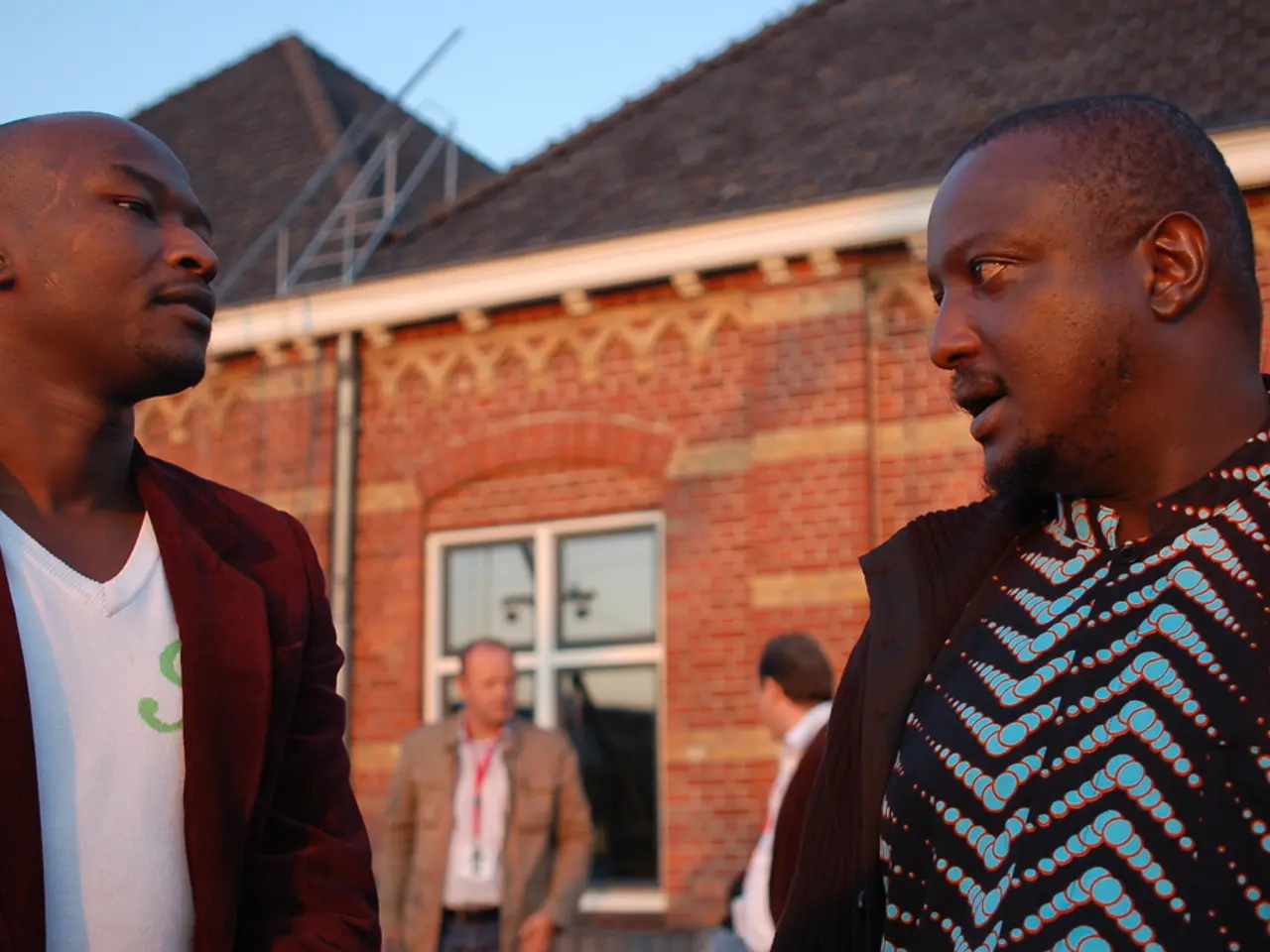Solar enterprise Sun King secures groundbreaking $156 million agreement to broaden solar accessibility across Kenya.
Kenya Takes a Major Step Towards Universal Electricity with Largest PAYG Solar Securitisation
Kenya is moving closer to its goal of near-universal electricity by 2030, as part of Mission 300, with the successful securitisation of a deal aimed at providing off-grid solar power to an estimated 1.4 million low-income homes and businesses.
The transaction, arranged by Citi and Stanbic Bank Kenya as placement agent, is a significant milestone in scaling up affordable, clean energy across Africa using pay-as-you-go (PAYG) models. The securitisation, which is rated privately and issued under Sun King's Sustainable Financing Framework, received a Very Good (SQS2) score from Moody's. This marks Sun King's second and largest Kenyan Shilling-denominated securitisation.
The growth of PAYG solar in Kenya is driven by a convergence of factors. Affordable financing, unreliable grid supply motivating demand, enabling mobile payment technologies, and strong investor backing have made solar energy accessible and sustainable for underserved populations.
Innovative financing models, such as PAYG, allow low-income households to access solar home systems by paying small amounts over time, overcoming upfront cost barriers. This flexible payment approach is critical for scaling adoption across populations unable to afford lump-sum payments.
Addressing energy poverty and unreliable grid supply is another key driver. In Kenya and broadly in sub-Saharan Africa, inconsistent grid electricity availability motivates consumers to seek reliable alternatives like solar PV systems. PAYG solar systems provide dependable power for basic needs such as lighting and phone charging, especially in remote areas.
Technological innovation and mobile money penetration also play a significant role. Advances in solar technology combined with widespread mobile payment platforms in Africa enable seamless PAYG transactions. Mobile money infrastructure underpins collection of payments and remote monitoring of solar systems, reducing operational costs and improving service delivery.
Impact investment and patient capital support are also crucial. Development finance institutions and impact investors provide funding, technical assistance, and risk mitigation, attracting commercial capital to the PAYG solar sector. This financial environment enables scaling while serving low-income markets profitably.
Scalable business models and market demand complete the picture. Companies like M-KOPA have demonstrated the viability of PAYG solar by serving millions in Kenya and beyond, leveraging affordable solar product tiers that meet essential electricity needs aligned with international standards.
With 30% of Kenyan homes already using Sun King solar, mobilising local capital is key to achieving the target of connecting 300M Africans to electricity. This deal, backed by 5 commercial banks and 3 development finance institutions, is a major step in this direction.
Jorge Rubio Nava, Citi's Global Head of Social Finance, mentioned that the securitisation demonstrates the effectiveness of pay-as-you-go business models to reach underserved communities at scale. African commercial banks believe in the power of pay-as-you-go solar and are ready to back it with serious capital, according to Anish Thakkar, Co-Founder of Sun King.
Sun King has disbursed $1.3B in solar loans to nearly 10M customers across Africa. The transaction supports Kenya's push for near-universal electricity by 2030, as part of Mission 300. This deal marks a major turning point for green energy finance in Africa, signifying a promising future for sustainable energy solutions across the continent.
References:
- [1] Hulme, M., & Mwangi, J. (2016). Pay-as-you-go solar: A new financing model for off-grid energy access in developing countries. Energy for Sustainable Development, 37, 1-12.
- [2] Mwangi, J., & Hulme, M. (2017). Pay-as-you-go solar: The role of financial innovation in off-grid energy access in Kenya. Energy Policy, 107, 269-278.
- [3] M-KOPA, (2020). M-KOPA's impact. Retrieved from https://www.m-kopa.com/impact/
- [4] Hulme, M., & Mwangi, J. (2018). Pay-as-you-go solar: A review of the evidence base. Energy for Sustainable Development, 42, 205-216.
- [5] International Finance Corporation. (2019). Pay-as-you-go solar: A new financing model for off-grid energy access in developing countries. Retrieved from https://www.ifc.org/wps/wcm/connect/industry_ext_content/ifc_external_corporate_site/energy/focus/offgrid_energy/pay-as-you-go-solar
- The securitisation of the PAYG solar deal in Kenya, which received a Very Good (SQS2) score from Moody's, is a significant step towards financing environmental-science initiatives that promote cleaner energy within the industry, particularly technology-focused solutions.
- As Kenya pushes for near-universal electricity by 2030, innovative finance models, such as PAYG, paired with impact investment and patient capital from commercial banks and development finance institutions, provide the means to expand technology in the environmental-science sector, ultimately benefiting the finance sector by opening new investment opportunities.




